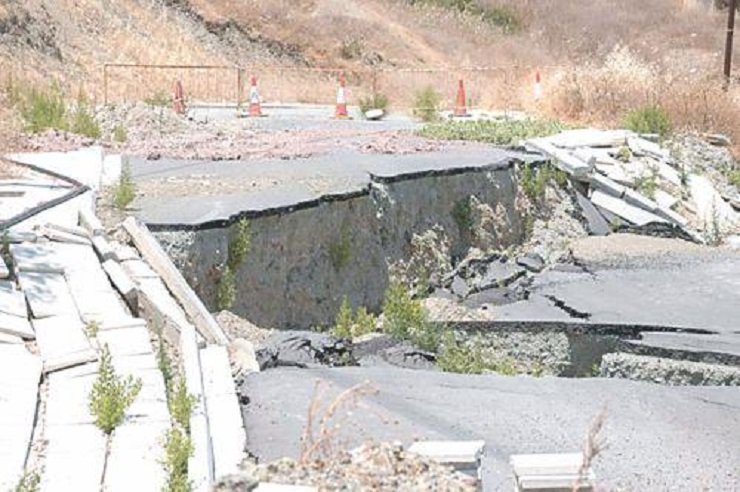A slow-moving landslide which has caused damage to the soil and houses is affecting the area “Limnes” in Pissouri, as the village is located in a geologically problematic zone, philenews reports.
Pissouri residents have been raising the problem since 2012, when a land slippage first appeared in the village.
Since then, many houses have sustained enormous damage. Georgia-Elina Zoi, lawyer of the Pissouri Housing Initiative Group (PHIG) cited the example of one house which has moved a full metre from its place.
Four families have had to leave their homes, without receiving compensation, as insurers in Cyprus do not cover landslides and it is the government which is responsible for paying compensation for damage from natural disasters.
“The government should stop pretending that it is the fault of the studies and admit that there is a landslide, to compensate those who have sustained damage and to issue title deeds,” she said.
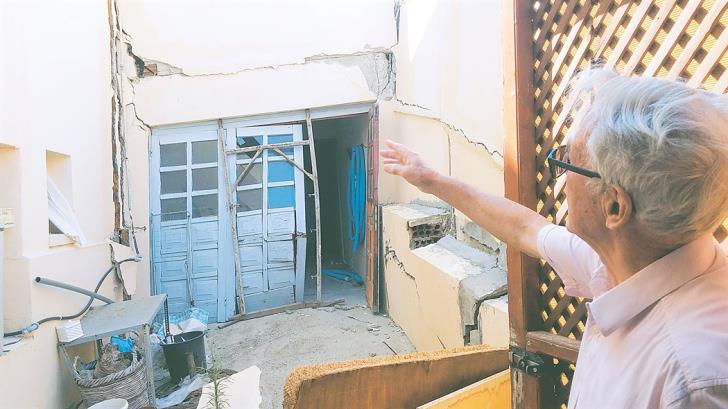

Which people are affected?
According to Zoi, Limnes is mainly inhabited by British and British-Cypriot pensioners, as well as young families.
Zoi says that Limnes residents who are not Cypriot citizens have no property back home and no access to the local banking system, in order to receive loans. “If they lose their property they will lose everything,” she said. Others, have taken out loans to build their houses and are now paying mortgages for houses that are collapsing.
“The government is waiting for the residents to leave or die. It is unacceptable for a state to not take care of its citizens and to expect from them to respond to natural disasters on their own,” Zoi said.
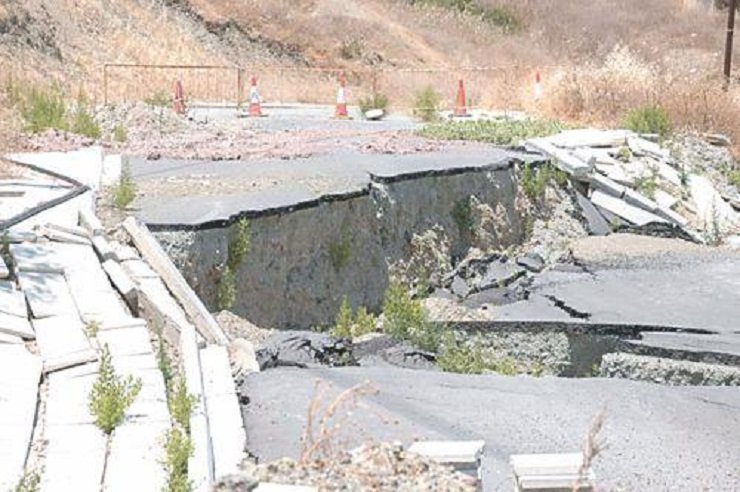
In September, the issue caught the attention of the BBC which highlighted the plight of British families whose homes have been ripped apart.
BBC One’s Inside Out South programme interviewed couples who said they had been abandoned by the government. Zoi told Radio Active that the state is dragging its feet, refusing to pay compensation.
“This is all we have. This was our dream home,” a tearful Katherine Yeomans told the programme. “We can’t go back to the UK because we have nothing there. We have no property there.”
Affected area is 500 thousand square metres and increasing
PHIG has obtained studies from experts and satellite imaging, at a cost of 25,000 euros, which measures the movement of the land. According to the study, the movement is up to 40 cm per year.
“We have proven the existence of an active slow-moving landslide, which is a natural disaster. The affected area measures around 500 thousand square metres and is increasing. The Republic of Cyprus should contact the competent bodies of the European Union and request financial assistance through European funds for natural disasters,” Zoi argued.
According to Zoi, all studies agree that a major factor in activating the phenomenon is the accumulation of large quantities of water in the subsoil, which comes from two sources: rain water and sewage water.
Lack of appropriate infrastructure has led to the accumulation of large quantities of water and the destabilisation of the soil, causing the slow-moving landslide phenomenon, the speed of which, however, has more than tripled in 2018, due to increased rainfall, Zoi says.
No evacuation plan
According to Zoi, state authorities have no evacuation plan for a case of natural disaster in the area.
The community and the Limassol District Administration are trying to open new roads through dirt fields as current roads are retreating and holes opening up. People are concerned that these roads, which could provide an escape route in case of danger, will turn into mud and trap cars, as has happened in the past, Zoi said.
“There is no plan to evacuate the area, or a plan to relocate or even temporarily house the residents in the event of a natural disaster. We worry that residents will get trapped in their homes without water and electricity if the winter continues like this. Most of last week the water was cut, while the electricity authority was replacing and expanding cables, trying to improve power supply,” Zoi said.
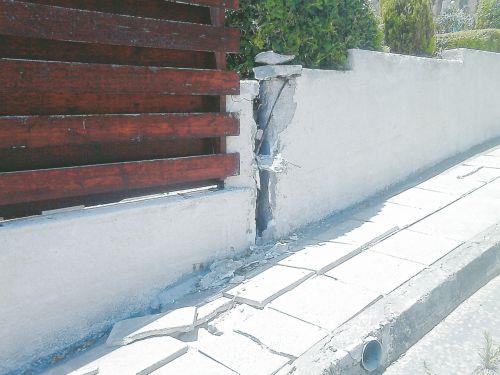
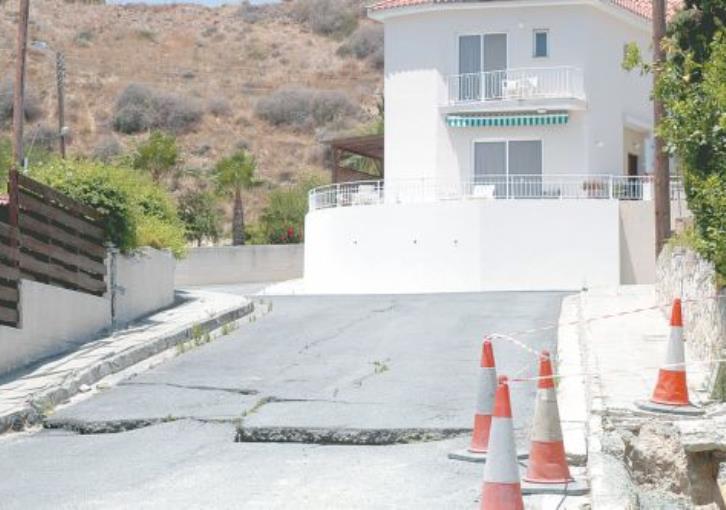
Proposed solutions
The Technical Chamber said that after it was informed about situation in 2015 it had sought and obtained information from the Interior Ministry as to what was to blame for the problem.
The Interior Ministry study included a proposal for constructing a pipeline network for groundwater monitoring as wells as pumps for the extraction of excess water. The cost of this system has been estimated at €20 million, but it has remained on paper.
In October 2017, the Interior Ministry announced that it will conduct a competition to study the problem and propose solutions.
Residents say that a new study will be conducted by the company that will win the competition. Then, the state will examine the study and decide whether it wants to adopt the proposed solution or to relocate the affected citizens. A process that might take many years.
The main request of the PHIG is the immediate relocation of the residents whose homes are on rift lines.
Read more:
https://in-cyprus.com/news/local/bbc-pissouri-houses-torn-apart-by-whats-thought-to-be-a-landslide/


